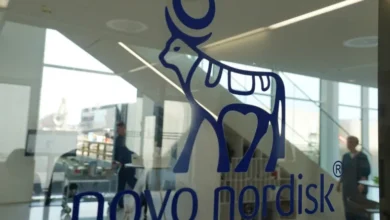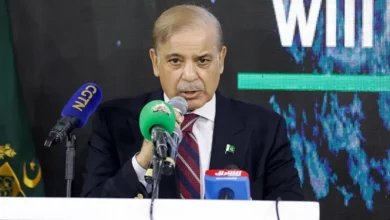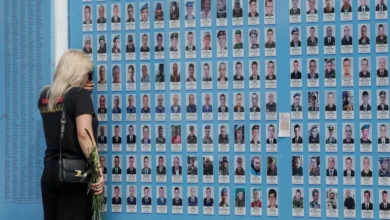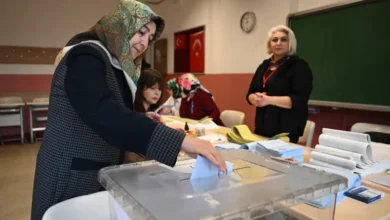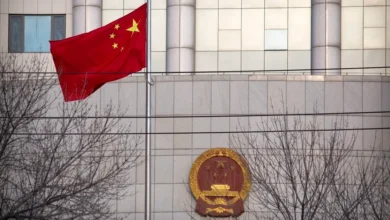Far right wins in first round of French elections
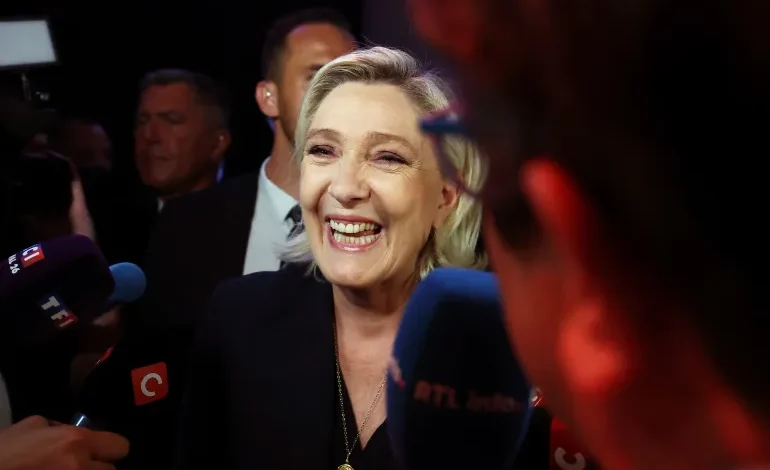
France’s far-right National Rally (RN) party has won a resounding victory in the first round of the country’s snap parliamentary elections.
Pollsters IFOP, Ipsos, OpinionWay and Elabe showed Marine Le Pen’s RN winning about 34 percent of the vote. The left-wing New Popular Front (NFP) coalition looked set to seal about 29 percent, and President Emmanuel Macron’s centrist Ensemble alliance about 20.5 percent.
The result puts RN in a position where it may start thinking hopefully about forming a government. However, forces across the rest of the political spectrum have suggested that they will cooperate to block the far-right party in the second round vote on July 7.
Macron stunned the country by calling the snap election after the RN surged in European Parliament elections last month, gambling that the anti-immigration party with historical links to anti-Semitism would not repeat that success at the national level.
At party leader Le Pen’s Henin-Beaumont constituency in northern France, supporters waved French flags and sang La Marseillaise, the national anthem.
“The French have shown their willingness to turn the page on a contemptuous and corrosive power,” she told the cheering crowd.
RN President Jordan Bardella, Le Pen’s protege and candidate for prime minister, pointed out that the second round would be “the most important in the history of the French Fifth Republic”.
Pollster Elabe said in an estimate for BFM TV that the RN and its allies could win 260-310 parliament seats in the second voting round on July 7, while Ipsos projected a range of 230-280 seats for RN and its allies in a poll for France TV.
Le Pen and Bardella have both said their party is chasing an absolute majority – a total of 289 seats – in the National Assembly, France’s lower house of parliament.
Macron calls for ‘broad democratic alliance’
The RN’s chances of winning power and forming a government depend on political dealmaking by its rivals over the coming days. In the past, centre-right and centre-left parties have worked together to keep the far right from power.
Macron called for a “broad” democratic alliance against the far right.
“Faced with National Rally, the time has come for a broad, clearly democratic and republican alliance for the second round,” he said in a statement.
He added that the high turnout in the first round spoke of “the importance of this vote for all our compatriots and the desire to clarify the political situation”.
Prime Minister Gabriel Attal warned that the far right was at “the gates of power”, and that “no vote should go to the National Rally”.
Jean-Luc Melenchon, who leads the left-wing New Popular Front, said he would withdraw candidates who placed third in the first round of parliamentary elections, to ensure two-horse races to defeat the highest number of far-right RN candidates in the coming vote.
If no candidate reaches 50 percent in the first round, the top two contenders automatically qualify for the second round, as well as all those with 12.5 percent of registered voters. In the run-off, whoever wins the most votes takes the constituency.
“In line with our principles and our stances in all previous elections, we will never allow the National Rally to achieve victory,” said Melenchon.
Laurent Berger, the former secretary-general of the French Democratic Confederation of Labour and current president of the European Trade Union Confederation, urged for a “blockade” in a post on X.
“This evening, our democracy and our republican values are at stake in the face of the National Rally on the threshold of power,” Berger said.
According to Rim-Sarah Alouane, academic at University Toulouse-Capitole, Le Pen “has done plastic surgery to her party”.
She said the results of this vote were also a rejection of Macron’s policies, with the president seen as “haughty” and pandering to the wealthy.
“I know personally about cases of people who voted for the far right because of the policies made by Macron, especially at an economic level,” Alouane said.

